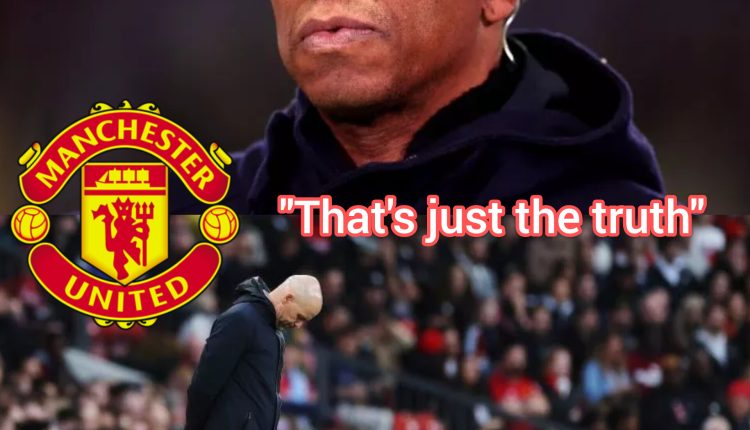One fundamental requirement for any successful football manager is to secure the unwavering commitment of their players. However, in the case of Erik ten Hag at Manchester United, there are growing indications that he has never fully achieved this crucial aspect. From the moment he arrived at Old Trafford, questions have been raised about whether he could command the dressing room in the way that is essential for consistent success at such a high level.
In stark contrast, managers like Mikel Arteta at Arsenal and Pep Guardiola at Manchester City have cultivated a robust sense of unity within their squads. Their leadership goes beyond tactics; it encompasses the ability to inspire loyalty, trust, and collective ambition. Arteta, for instance, has fostered a youthful, driven side that mirrors his vision, while Guardiola has continually refined Manchester City into a well-oiled machine, defined by shared purpose and tactical precision. Jurgen Klopp, during his most dominant years at Liverpool, also enjoyed a similar level of cohesion, one that translated into silverware and a fearsome reputation on the pitch. Even managers like Arne Slot have been able to draw exceptional performances from their squads, suggesting that effective communication and leadership are indispensable.
When Erik ten Hag speaks in interviews, such as those shared on platforms like beIN Sports, there is often a noticeable stiffness in his demeanor. His delivery can come across as somewhat robotic, and his English, though serviceable, sometimes lacks clarity, especially when it comes to conveying complex ideas. This raises an important question: if his public appearances reflect a certain disconnect, could the same lack of clarity be affecting his interactions with the players behind closed doors? If his communication is muddled, it would be no surprise if the players are struggling to grasp or buy into his philosophy. After all, clear and direct communication is vital for translating tactical concepts into effective gameplay.
A growing number of observers, including former players and pundits, believe that Ten Hag might have lost control of the dressing room altogether. This sentiment was recently echoed by Stan Collymore, who made a particularly blunt remark that is likely to rile Manchester United supporters. In his exclusive column for CaughtOffside, Collymore stated his belief that “Erik ten Hag never had control of the Manchester United dressing room, to be perfectly honest.” It’s a bold claim, but one that reflects a broader concern about Ten Hag’s leadership.
Collymore went further to explain that while winning a couple of cups might have temporarily boosted the players’ confidence in Ten Hag, it has not been enough to instill a lasting belief in his methods. He suggested that the squad may have experienced a ‘halo effect’ after those initial triumphs, but that glow has quickly faded. “Man United haven’t played with any identity, belief, or authority since Ten Hag’s arrival. That’s just the truth,” Collymore asserted. His criticism cuts deep, pointing to a lack of cohesion and a clear playing style—two elements that are essential for any top-level team.
Although Manchester United fans may find Collymore’s words hard to swallow, his analysis resonates with the evidence on the pitch. The Red Devils, once feared and respected in both domestic and European competitions, have shown little of the dominance that defined their golden years. Collymore’s observation that the team no longer commands respect in regular league games is especially damning. The implications of this are significant: without fear or respect from opponents, United’s path back to the top becomes increasingly treacherous.
Collymore’s assessment doesn’t stop there. He continues by emphasizing that professional players are acutely aware of when things aren’t right within a team. While they have personal pride, it’s clear that their commitment to Ten Hag may not be as strong as it needs to be. “I doubt there’s a single player truly playing for the manager,” Collymore stated bluntly. This is a scathing indictment, suggesting that the players are merely going through the motions rather than being inspired to give their all for Ten Hag.
Perhaps the most concerning part of Collymore’s analysis is his assertion that Manchester United are currently performing so poorly that there’s no realistic chance of them finishing in the top four this season. If that prediction holds true, it would mean the club missing out on Champions League football—a devastating blow for a team that prides itself on being part of Europe’s elite. The consequences of such a failure would likely extend beyond the pitch, impacting everything from finances to player recruitment.
In summary, Collymore’s critique highlights a worrying lack of cohesion and identity at Manchester United under Erik ten Hag. While other managers like Guardiola and Arteta have managed to build strong, unified squads, Ten Hag appears to be struggling in this regard. If he is unable to establish clear communication and win the trust of his players, it’s difficult to see how United can turn their season around. The question now is whether Ten Hag can adapt quickly enough to salvage not just this campaign, but his tenure at one of the world’s biggest clubs. Without a significant shift, the dismal situation described by Collymore could soon become an undeniable reality for Manchester United
and their fans.
